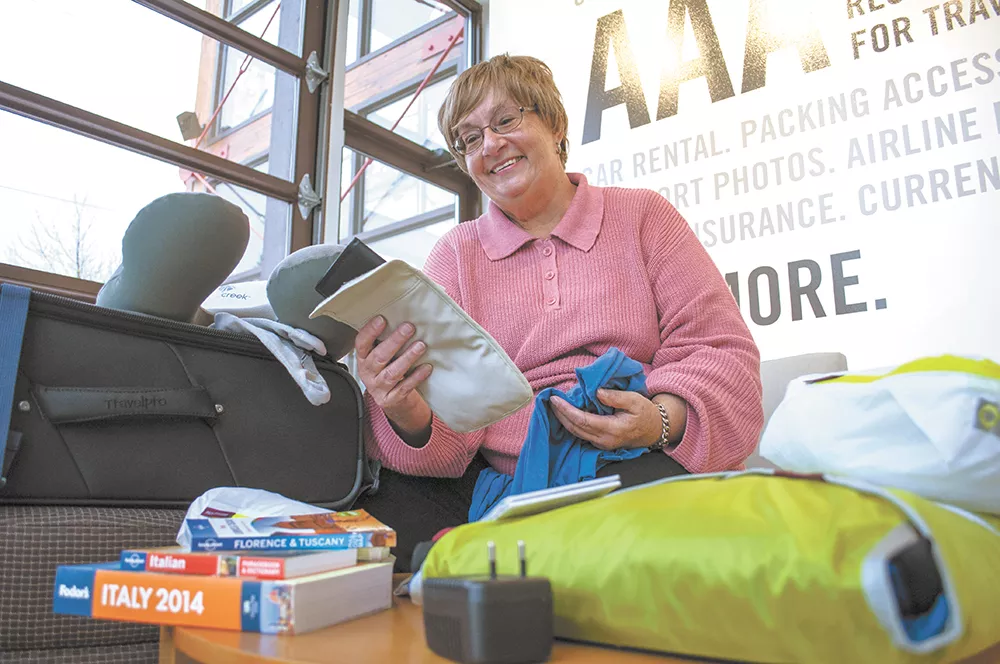Ebola in West Africa, dengue fever in Japan, enterovirus D68 in Kentucky, bedbugs the world over. What's a traveler to do? With disease and epidemics making headlines, it's natural and prudent to be concerned about packing a suitcase and leaving home for a spell. However, armed with knowledge and common sense, you can have a safe, healthy and memorable travel experience.
A little perspective is valuable. Cautionary tales abound for travel outside the United States, but it's important to keep in mind that you are far more likely to be in an automobile accident within 20 miles of home than you are to get seriously ill abroad. Health and sanitation conditions in Canada, Australia, New Zealand and Europe are similar to America, but that's not the case in much of the rest of the world. However, don't let that deter you. You can boost your odds of staying healthy if you get the recommended inoculations, avoid unpeeled fruit and vegetables and undercooked meat, wash your hands frequently, drink bottled water and beverages, practice safe sex, get plenty of sleep and stay hydrated.
Booking your trip with a travel agent is another solid way to keep abreast of the rapidly changing international medical landscape. There's nothing more comforting than the face-to-face conversation you can have with an expert who can allay your fears or help make itinerary changes if necessary.
"Travel agents have resources that are exclusive to their industry, which is very beneficial to their clients — to get real-time information if there is something that could disrupt their trip, or if something goes wrong while on their trip," says Jennifer Cook of AAA Washington. "For example, we recently received notification from two prominent cruise lines that they were changing their screening process for guests due to the Ebola outbreak. We were able to immediately let our clients know."
If you've booked a trip on your own, the Centers for Disease Control and Prevention (cdc.gov) lists all vaccinations you should have before entering a foreign country and has detailed information on health issues. The CDC's no-nonsense information is so straightforward it will either put your mind at ease or convince you to stay home.
Ebola will dominate the news until it's contained, which could take months and result in continued tragic loss of lives. Before you hit the panic button, remember that the Ebola epidemic is now contained to West Africa and that Ebola spreads only by direct contact, through broken skin or mucous membranes, with the bodily fluids of an infected person. It is not transmitted through the air, water or food (except bush meat, which you're not likely to consume here or in Africa).
"Concerns about contracting Ebola during international travel are out of proportion to the risk," says Joel McCullough, M.D., health officer at the Spokane Regional Health District. "Enhanced protocols are in place to screen and monitor people entering the U.S. from Ebola-infected Sierra Leone, Guinea and Liberia. In reality, travelers are more likely to experience gastrointestinal problems or catch the flu than they are to contract Ebola.
"To stay healthy when traveling, especially to areas with sanitation standards below that of the U.S.," Dr. McCullough continues, "wash your hands frequently, don't drink tap water or consume ice. Avoid unwashed or raw food in developing countries. Carry hand sanitizer and use it, even on the airplane."
Food prepared by street vendors, especially in Third World countries, is usually not advised. However, if it's steaming hot, the germs are probably gone. But if it makes you nervous, skip the cultural experience of street-stall dining. Some people have sensitive stomachs, some don't. Follow your best judgment.
Closer to home, nearly 600 cases of enterovirus D68 (EV-D68), a severe respiratory illness that affects mostly children and asthma sufferers, have been reported in 46 states and the District of Columbia. Like the common cold, EV-D68 spreads through coughing, sneezing and touching contaminated surfaces. Check the CDC's website for a list of states where EV-D68 has been reported.
Be on the lookout for bedbugs, nasty critters that have migrated from hostels to five-star hotels across the world. They won't kill you and don't spread disease, but can make you itch so badly you'll want a sedative. Bedbug bites can lie dormant for several days and not erupt until days after you've been infected. What to do?
Check the sheets, mattress (look in the seams), headboard, nightstand and crevices in the floor and walls for tiny (.2 inches long), six-legged, brown, white or red bugs. Look for minuscule blood spots or feces. Keep your suitcase closed and off of the floor, and don't throw your clothes on the floor or over furniture. If bites erupt, use anti-itch topical treatments like cortisone — and don't scratch the bites! If you do and a secondary infection occurs, apply antiseptic lotion or antibiotic cream. See your doctor if bedbug bites don't diminish within in a week, or if your bites become infected.
Should you stay or should you go? Silly question: Of course you should go. Just follow these common sense suggestions. Bon voyage! ♦

